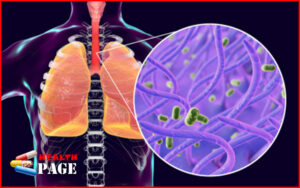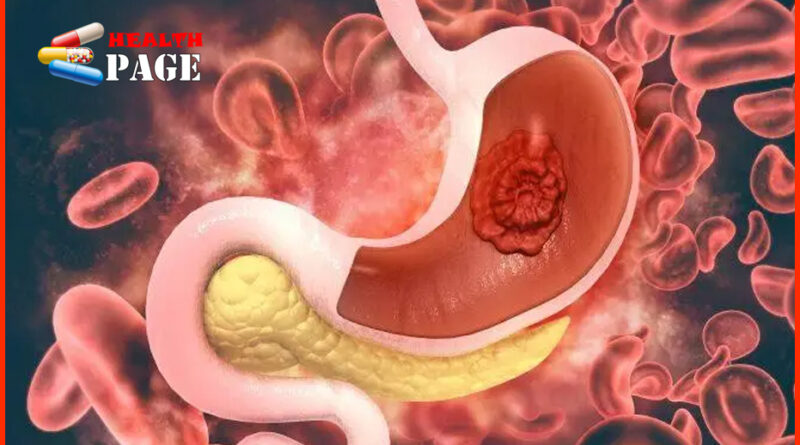Peptic ulcer is actually related to anxiety/psychology
It is often said that delicious food is not to be missed, but for some people, delicious food has become a burden, not because they don’t like delicious food, but because gastrointestinal diseases make them suffer. The most common peptic ulcer is typical , such as bloating, nausea and vomiting, abdominal pain, acid reflux, heartburn, etc. These problems have been lingering and difficult to completely cure, so delicious food cannot be enjoy.
In order to relieve gastrointestinal diseases, many people have summed up a series of experiences, such as not eating too sour, too spicy, or avoiding cold stomachs, and doctors will also prescribe some drugs for digestive treatment.
However, there may be a very cold knowledge, that is: psychological factors such as anxiety are also factors that cause peptic ulcers .
I guess you must be surprise to hear this content. Everyone knows that peptic ulcers can cause anxiety, but isn’t anxiety the result of peptic ulcers? How can it lead to peptic ulcers?
This is to talk about the impact of psychological factors, especially anxiety, on peptic ulcers, which has been a very cutting-edge topic in recent years.
Relationship between anxiety and peptic ulcers
In fact, researchers have noticed the relationship between anxiety and peptic ulcers for a long time. As early as during World War II, Spicer and others noticed that the rate of peptic ulcer perforation increased significantly during the German bombing of London. Later, in a series of disasters such as the Bulgarian economic collapse and the Kyoto earthquake in Japan, the incidence of peptic ulcers increased. This made people realize the significance of social psychological factors. In subsequent studies on social psychological factors, especially anxiety, for the course of peptic ulcers, this kind of situation was notice.
For example, the following table is a comparison of the symptoms of peptic ulcer patients and anxiety. It can be see that people with anxiety have higher peptic ulcer symptoms than the general control group

Research
So, is there any physiological and pathological mechanism behind this that can be interpret?
Research in recent years has also revealed the reasons behind this. That is, our emotions will affect physiology through hormones and other effects. For example, when people have emotional stress such as anxiety, depression, and frustration, our body will respond to these stresses, and affect the body’s digestive system through a series of activities such as the sympathetic nervous system and hypothalamus-pituitary gland , such as increased gastric juice secretion, continued increase in gastric acid and pepsin, thereby causing peptic ulcers.
It can be seen that peptic ulcers and anxiety affect each other. Anxiety may cause peptic ulcers, and the discomfort of peptic ulcers themselves will further lead to psychological damage, causing anxiety and depression, so peptic ulcers are more serious. This vicious cycle is also an important reason why peptic ulcers are difficult to completely heal in many cases.
Psychosomatic disease
In fact, in recent years, professionals have defined peptic ulcer as a psychosomatic disease . For example, the Expert Guidelines for the Integrated Diagnosis and Treatment of Digestive Psychosomatic Diseases by Integrated Traditional Chinese and Western Medicine formulated by the Digestive Diseases Committee of the Chinese Association of Integrated Traditional Chinese and Western Medicine clearly pointed out that digestive system diseases are psychosomatic diseases. Their characteristics are:
(1) psychosocial factors play an important role in the occurrence and development of the disease;
(2) clinical manifestations are mainly physical symptoms of the digestive system, including organic pathological changes and/or functional disorders; and
(3) mental and psychological reactions caused or aggravated by digestive system diseases.

Regular medical treatment
Because of this, in addition to regular medical treatment, psychological intervention is also absolutely indispensable for peptic ulcers, especially anxiety, which is the most common psychological condition in peptic ulcers. Intervention of anxiety is not as simple as keeping a good mood, because anxiety is already a clinical disease and requires special treatment.
The “Guidelines for the Prevention and Treatment of Anxiety Disorders” [4] issued by the Chinese Medical Association’s Psychiatry Branch points out that there are three major types of treatments for anxiety:
1) Drug therapy: SNRIs, 5-HT1A receptor partial agonists, SSRIs, BZDs, and other drugs
2) Psychological therapy
3) Physical therapy: biofeedback therapy, traditional Chinese medicine acupuncture therapy For ordinary people, the most easily accepted drug treatment is the classic anti-anxiety drug tandospirone citrate capsule , which is essentially a 5-HT receptor partial agonist.
5-HT receptors refer to receptors that specifically bind to 5-hydroxytryptamine (5-HT). 5-HT is an important neurotransmitter that is widely present in our brain and intestines. It can regulate emotions, especially in emotional centers such as the hippocampus and amygdala. Therefore, it can be use as a drug target to combat emotions. 5-HT receptors have become a classic target for anti-anxiety drugs. Drugs can adjust emotional states by acting on these receptors. Interestingly, since 5-HT itself is also distribute in the intestines, tandospirone citrate, a partial agonist of the 5-HT receptor, can also act on the intestines. Because of this, the “Expert Recommendations on the Clinical Application of Tandospirone in the Treatment of Anxiety in Patients in General Hospitals” issued by the Psychosomatic Medicine Research Branch of the Chinese Medical and Health Culture Association has a special section on the identification and application of tandospirone citrate in the Department of Gastroenterology
In fact, from the perspective of the mechanism by which this drug acts on the 5-HT receptor, a human neurotransmitter, anxiety is by no means a simple emotion. It contains complex physiological and biological mechanisms and is also an organic disease.
In fact, as a recognized physical and mental disease, peptic ulcer can cause patients to have psychological conditions such as anxiety, and anxiety itself can also cause peptic ulcer or aggravate the condition of peptic ulcer, making it difficult for peptic ulcer and anxiety to accompany patients and improve. This is why doctors often prescribe anti-anxiety drugs to patients when dealing with peptic ulcers. Another unique feature of tandospirone citrate capsules is that its target is also in the digestive tract. So it can also act on the digestive tract and directly deal with peptic ulcers. Which is why its experts recommend that it be apply to digestive diseases.
Because of this, for a physical and mental disease such as peptic ulcer. The response cannot be simply aimed at digestion itself. But also should consider the treatment of common peptic ulcer-induced and concomitant diseases such as anxiety. Only in this way can peptic ulcers be better relieve and treat.



Pingback: Stomach Ulcer ICD 10: Comprehensive Information
Pingback: Causes of Nausea & How to Relieve It – Symptoms & Solutions
Pingback: Solar Plexus Pain: Causes, Symptoms & Treatment Options
Pingback: 5 Proven Risek Tablet Uses for Better Digestion and Health
Pingback: What causes bad breath? 10 most effective home remedies for getting rid of bad breath. - Healthy Post